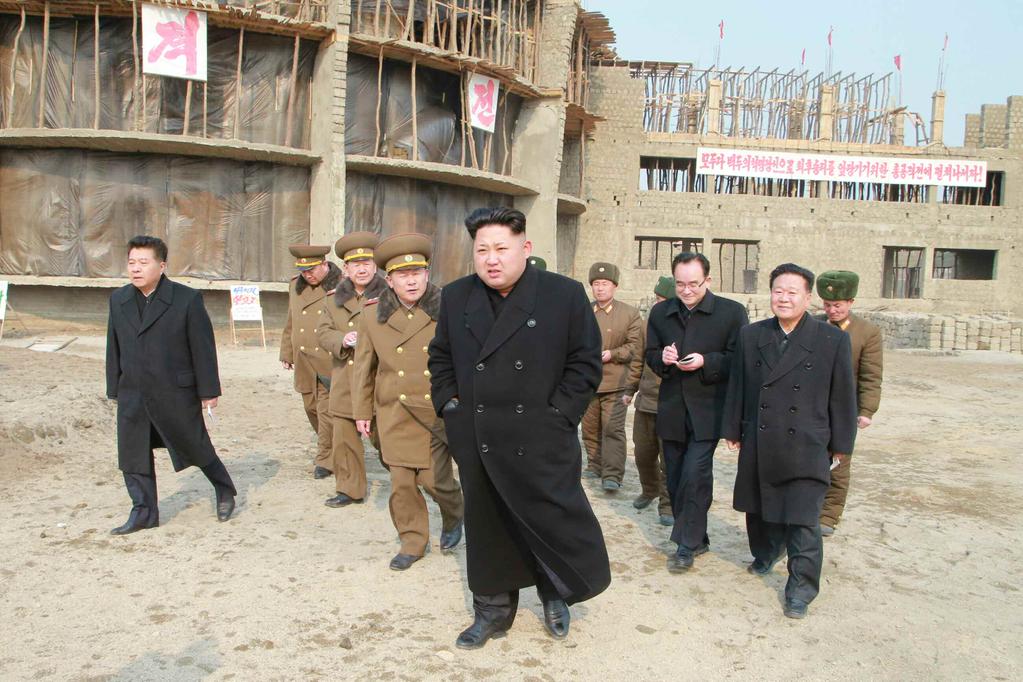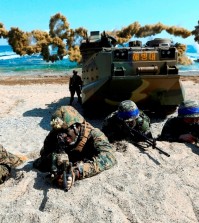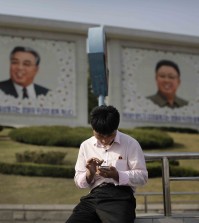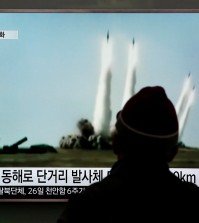- California Assembly OKs highest minimum wage in nation
- S. Korea unveils first graphic cigarette warnings
- US joins with South Korea, Japan in bid to deter North Korea
- LPGA golfer Chun In-gee finally back in action
- S. Korea won’t be top seed in final World Cup qualification round
- US men’s soccer misses 2nd straight Olympics
- US back on track in qualifying with 4-0 win over Guatemala
- High-intensity workout injuries spawn cottage industry
- CDC expands range of Zika mosquitoes into parts of Northeast
- Who knew? ‘The Walking Dead’ is helping families connect
US expert expects collapse of N. Korean regime

This Rodong Sinmun photo released on Feb. 11, 2015 shows North Korean leader Kim Jong-un visiting the construction site of an orphanage in Wonsan on the east coast. (Yonhap)
By Lee Haye-ah
LOS ANGELES
(Yonhap) — North Korea’s regime could collapse at any time due to the reign of terror of its young leader Kim Jong-un, a U.S. expert on Northeast Asian affairs said.
Bruce Bennett, senior defense analyst at the RAND Corp., authored a report in 2013 that warned of the likely collapse of the North Korean regime.
Two years on, he said that the possibility remains as Kim continues to rule the country with an iron fist, executing his once powerful uncle Jang Song-thaek and changing his defense minister five times in less than four years.
“We have to think that sooner or later someone in that military chain is going to consider that if they don’t do something about Kim Jong-un, they will be next,” Bennett told South Korean journalists in a meeting Friday organized by the Korea Press Foundation and the East-West Center. “Even in Germany during World War II, where security was extreme, there was still an assassination attempt against Adolf Hitler by the military. So it could happen.”
For a peaceful reunification, South Korea should take steps now to convince the North Korean elite that they will be granted amnesty for their crimes and have a better life, he said.
Bennett also challenged President Park Geun-hye’s theory that inter-Korean reunification will be an economic “bonanza” for the two sides and a blessing for neighboring countries, saying China may have a different view.
“China will have many reasons for going into North Korea in such a situation,” Bennett said, referring to the possibility of a North Korean regime collapse or a similar event that could lead to reunification.
If North Korea collapses, about 3 million North Koreans are expected to come into South Korea as refugees. As few North Koreans live close to the inter-Korean border, more of them — some 5 million — could try to cross the border into China, according to Bennett.
“For many reasons, China wants something less than zero of them coming in,” he said. “The only way they can do that is by projecting military forces 50 to 100 kilometers into North Korea and setting up refugee camps in North Korea rather than in China.”
Bennett questioned the idea South Korea will gain large economic benefits from tapping into future infrastructure projects in the North.
“China will want to continue to own all of the property Chinese companies have purchased in North Korea, which will undermine President Park’s ‘jackpot’ or ‘bonanza,’” he said.















